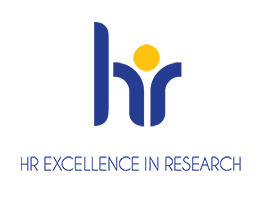We offer you responsible and interesting tasks and the opportunity to develop your professional skills in a versatile operating environment. You get a professional and inspiring team to support your work. We take care of your well-being at work and the functionality of your everyday life, e.g. with the help of flexible working hours and our well-being services.
- Responsible employer – We value collegiality and promote equality, diversity, and inclusivity.
- Possibilities to develop your expertise – We encourage our personnel to develop their professional expertise by offering versatile training and competence development possibilities which employees can take advantage of during their working hours. Also, the course offering of Open University is free of charge for our personnel.
- Your well-being is important to us! – In addition to comprehensive occupational health care, our own well-being services monitor, support and develop the well-being of our personnel. You are entitled to use the CampusSport’s services at a personnel price.
- We support your work-life balance – Flexible working hours and extensive remote work options help you balance work and leisure time. You also have access to long annual leaves.
- An inspiring and supportive work community – We encourage each other and value working together!
Please read more about University of Turku as an employee from our Come work with us! pages.
The European Commission has awarded the University of Turku the right to use the HR Excellence in Research logo. The logo is a token of the University's commitment to continuous development of the position and working conditions of researchers according to the guidelines set forth in the European Charter for Researchers.
The university offers good support and orientation for international hires. Please learn more about the Finnish culture and relocation to Finland:
Salary and trial period
The salaries are determined in accordance with the university salary system for teaching and research personnel when negotiating the employment contract. For a postdoctoral researcher, the salary is at levels 5-6 on the job demands chart. In addition, a personal work performance component will be paid. The total salary will be commensurate with qualifications and experience and will be approximately 3500 €/month at the beginning of the employment. The position is subject to six-month trial period. If a project researcher is hired for the position, the salary will be approximately 3000 €/month and three-month trial period.
How to apply
Applications must be submitted on May 16th 2025 (at 16:00 EEST) at the latest via the electronic application form of the University of Turku on the following address: https://www.utu.fi/en/university/come-work-with-us/open-vacancies The link to the application system can be found at the beginning of this announcement (Apply for the job). Applications should include:
- a motivation letter
- curriculum vitae
- list of publications
- copy of degree certificate
- contact information of two referees (in the application form)
Please select the two most preferred research groups on the application form.
Further information
For further information, please contact Professor Kati Miettunen, kati.miettunen(at)utu.fi. Questions related to the application process, please contact HR Specialist Janna Salminen, janna.j.salminen(at)utu.fi














